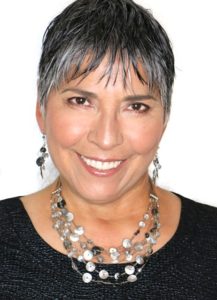The implementation of the Contextualized ELD Teaching and Learning Model insures English language learners will gain access to college and career pathways to be college and career ready and prepared for post-secondary options.The outcome of the workshop:
- This workshop targets secondary level (6-12) grades.
- The audience will learn how current language implementation policies impact the ability of English language learners (ELL) to access college and career courses that provide the 21st century skills needed to fully participate in a global economy.
- At this workshop, the audience will be introduced to the Contextualized ELD Teaching and Learning framework. The model is built on foundational inclusive pedagogy strategies where all students are enrolled in core and technical academic courses. The paradigm shift is how the team of teachers and ELD strategist work as a team to integrate language development strategies into the curriculum. The role of the ELD strategist is to coach the other core and technical teachers by providing strategies on how to teach language development and language acquisition skills in the course of study. The predominant method of providing English language development (ELD) instruction is to pull the ELL student from their academic courses into an ELD courses to develop their English proficiency. Using the Contextualize ELD Teaching and Learning framework at the secondary level by teaching English language development that is integrated into the content courses provides the students with success in meeting the college admission requirements and career readiness.
 Cecilia Mendoza joined the teaching staff at California State University, Fresno as an Assistant Professor of Educational Leadership in 2017. Prior to transitioning to higher education, Dr. Mendoza served as a secondary teacher, college instructor, and site/district administrator in public education for 36 years. Throughout her professional tenure, Dr. Mendoza has been instrumental in providing students equity and access to educational programs through career themed pathways, small learning communities and ethnic studies in Arizona and California.
Cecilia Mendoza joined the teaching staff at California State University, Fresno as an Assistant Professor of Educational Leadership in 2017. Prior to transitioning to higher education, Dr. Mendoza served as a secondary teacher, college instructor, and site/district administrator in public education for 36 years. Throughout her professional tenure, Dr. Mendoza has been instrumental in providing students equity and access to educational programs through career themed pathways, small learning communities and ethnic studies in Arizona and California.Dr. Mendoza’s doctoral dissertation focused on the impact of career themed pathways on Second Language Learners in becoming college and career ready. Her research revealed an apparent disparity in how long term English language Learners (LTEL) were not accessing college preparation programs like career themed pathways. This disparity was traced to conflicting language policies on how English Language Development courses are taught to English learners in developing their English proficiency. For secondary level LTEL students, having multiple classes of ELD instruction impacts the availability to participate in college preparation programs like career themed pathways due to conflicts in their schedules.
Secondary level ELL students want to participate in college preparation programs like career pathways that provide engagement and build the capacity for students to be college and career ready. College and career readiness is the knowledge and skills students must achieve in order to graduate from high school ready to succeed in entry-level, credit-bearing academic college courses and in workforce training programs
As a result of her dissertation findings, Dr. Mendoza and Theresa Ordóñez co-founded a program that prepares ELL students for college and career. A.N.I.M.O-Success is a student centered program for Second language learners that develops social capital in middle and high school students by providing educational equity and access through: College and Career Readiness, Personal Empowerment, Leadership Development and Cultural Validation.
 Theresa Ordóñez is a former Immigration Attorney who represented Spanish speaking indigent parents and children in deportation proceedings. She has taught English and writing college courses to second language students and has a passion for instilling a love of language in all her students. As the daughter of immigrant parents from Mexico, she experienced firsthand the disparity in support services and educational opportunities for immigrants and second language learners. Her passion to help second language learners led to the co-creation of A.N.I.M.O.-Success, a program that develops social capital in middle and high school second language learners.
Theresa Ordóñez is a former Immigration Attorney who represented Spanish speaking indigent parents and children in deportation proceedings. She has taught English and writing college courses to second language students and has a passion for instilling a love of language in all her students. As the daughter of immigrant parents from Mexico, she experienced firsthand the disparity in support services and educational opportunities for immigrants and second language learners. Her passion to help second language learners led to the co-creation of A.N.I.M.O.-Success, a program that develops social capital in middle and high school second language learners.The A.N.I.M.O.-Success program is built on four pillars that provide educational equity and access for second language learners through college and career readiness, personal empowerment, leadership development and cultural validation. The program develops student literacy capacity through their writing as emergent bilinguals. Students feel empowered when their home language is valued and encouraged. Cultural validation is vital to a student’s sense of self in an educational system that often minimizes their contributions. A.N.I.M.O.-Success provides students the foundation to fully engage in their learning and succeed in school.




